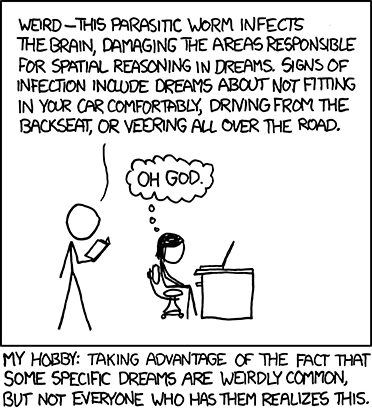I may have earlier mentioned an example I was given, of looking at a map and realizing that something important exists beyond the frame. Whatever it is, it isn't drawn yet on the map; which just ends there. So the task is to locate within some sense of what's missing and find a way to bring it to language that others can hear and understand.
Lenore had said in her book “For INJ’s, the patterns aren’t ‘out there’ in the world, waiting to be discovered. They’re part of us [i.e. internal]—the way we make sense of the riot of information and energy impinging on our systems.†(p.225). I believe what this is saying is that what lies "beyond the map" for instance represents patterns that are inside of us, and thus knowable, but are not conscious, and thus will only come up as "hunches", which may be ignored by most types.
So when I was given the map example, I thought of two streets that are converging when the map ends, and figuring they must meet (but then realizing they might not). But that is actually looking at the object [in this case, the map], and thus Ne. (With the "correct"— according to individual deduction judgment, of Ti. And of course, Si would represent remembering seeing the next map, and thus knowing what was there, and Se would represent getting the next map and just look at it directly).
So I guess another comparison of Ni with Si would be Si remembering the simple facts of experience more clearly, where it is still images of tangible items, while Ni might also involve experienced stuff, but it's forgotten, and yet is still can come up and influence your perceptions of things in a more "abstract" way.
(What makes it difficult, is that Jung described iNtuition as "unconscious", but he also described introversion as an orientation as "unconsious" as well. So both Si and Ni ⦅and Ne⦆ will all be "unconscious" in one way and/or the other, and it's hard to place each function in relation to each other when labeled with that term).
So it would be like Se experieincing something, and simply reacting to whatever presents itself. Si experiences something, and "Stores" this for future reference. With Ni, the person has forgotten the experience, but bits and pieces of it reside in the subconscious, and he has a sense of the outcome, though he can't really put a finger on it or describe it well. (And then will often set out to employ symbols to describe things. And Ne will reference similar experiences and infer the outcome from that).
So would the Ni preferrers say that that fits their functional experience?


